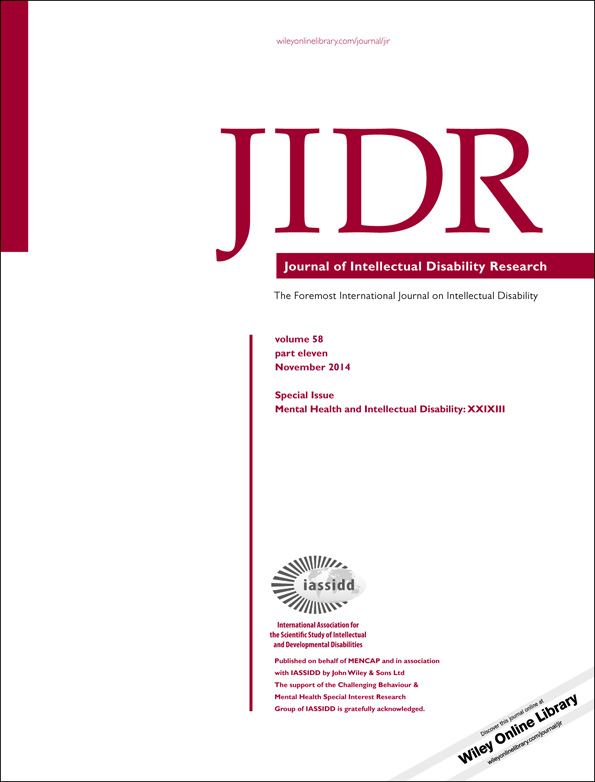Attributions, criticism and warmth in mothers of children with intellectual disability and challenging behaviour: a pilot study
Abstract
Background
Associations between parental expressed emotion (EE) or parental attributions and the problem behaviours of children with intellectual disability (ID) have been explored in ID research. However, a more detailed examination of the attributional model of EE has not been reported. In the present study, we partially replicated and extended research focused on mothers of typically developing children with behaviour problems.
Methods
Twenty-seven mothers of children with ID and behaviour problems aged 4–9 years were interviewed about their most problematic behaviours exhibited by their child, and completed a Five Minute Speech Sample. Interview transcripts and speech samples were coded for maternal EE and spontaneous causal attributions regarding the child's behaviour problems. Data were also collected on maternal well-being, and the child's behaviour problems.
Results
Mothers typically made attributions that were internal to the child, controllable by the child, personal to the child and stable for the child. Maternal attributions of being able to control the child's behaviour were associated with high maternal criticism and low warmth. Maternal depression was more strongly associated with the child's behaviour problems when mothers were coded as high in criticism or low in warmth.
Conclusions
Patterns of maternal attributions about their child's behaviour problems and their consequences for maternal well-being and maternal–child relationships require more research attention. Implications for practice are discussed, including the potential for maternal attributions to be incompatible with the focus of positive behaviour supports offered to families.




